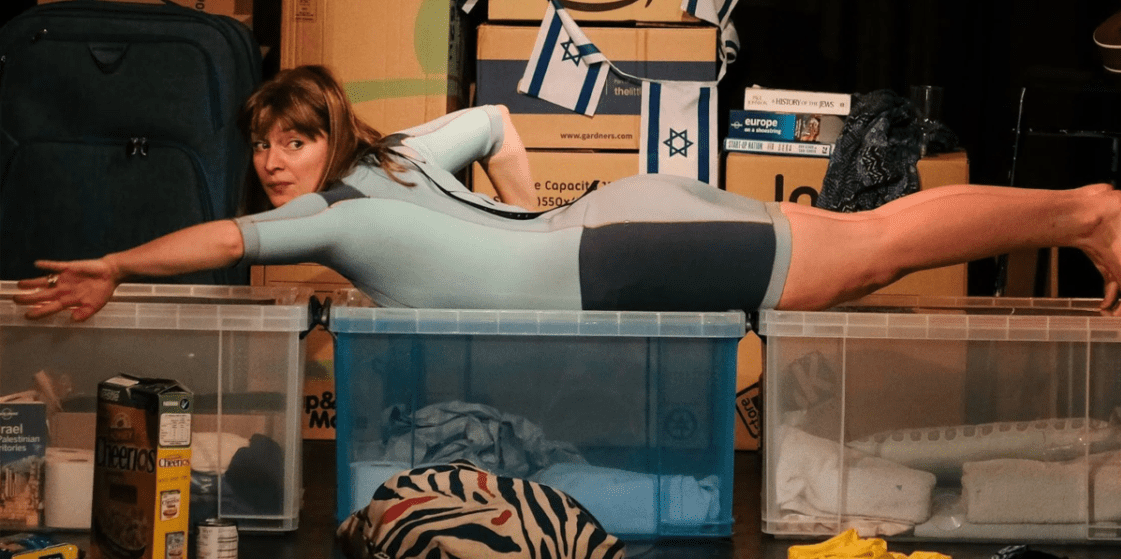Like a surfer delivering a tricky roundhouse cutback, US writer and actor Erin Hunter has delivered something rare, special and worth watching. In a mostly autobiographical tour de force, Hunter tells the story of her year in Israel, listening out for air raid sirens, suffering the isolation of not being properly Jewish, learning to surf, and watching her husband drift away on a tide of religiosity.
Surfing the Holyland is a tale of a fish out of water, the fish being Heather, a 30-something American from Ohio who has converted to Judaism to be with her Californian tech geek husband Zach. MIT graduate Zach, despite his love of Dorian modal jazz and desire to play jazz in New York, is lured to Tel Aviv to work in cyber security. Here, he falls in line with his new boss Lauren, an observant Jew from Paris, and out of love with Heather.
Heather, denied an Israeli work visa by the Jewish Agency for not being quite Jewish enough, finds solace in learning to surf under the firm direction of Israeli surfer dude Udi. As Zach becomes increasingly observant, Heather becomes increasingly homesick. The tension between them grows as Heather tries, and fails, to navigate the social and cultural minefield of Israeli society, culminating in her gate-crashing her own husband’s bar mitzvah.
What is remarkable about this performance is the stagecraft. Hunter performs solo, with no scenery, for nearly two hours. She introduces us to Zach, Udi, Judy and Roger her parents, her new friends Shiraz and her oldest one Rachel, Mosche an old guy who improbably also surfs, and a range of other characters. She delivers a range of Israeli accents without cliché or caricature and introduces characters from hipsters to zealots – all without a change of costume or make-up. Not a wig in sight.
Hunter has only three plastic crates for company, which serve as surfboard, Passover seder table, and contain minimal props such as the canned peas that Zach insists must be thrown away for the kitchen to be kosher. Everything else is delivered through Hunter’s great skill as an actor, with great versatility and physical presence. But there’s more: Hunter also punctuates her narrative with jaunty and surreal songs accompanied by her ukelele. She writes, she acts, she plays the ukelele – is there nothing she cannot do?
There are several sub-texts swirling around the central story – the pressure on 30-somethings to procreate, the disapproval of parents, the need to sometimes just jump into the water despite the fear of sharks, and of course the ever-present Israeli-Palestinian conflict. There are trips to the Golan Heights, onto a West Bank settlement, and into the waters off Tel Aviv as rocket sirens sound. The play begins and ends with Israeli fighter jets giving a display to mark Israel’s independence day.
An end note on the music. As the audience takes its seats, we hear both contemporary Israeli pop (Idan Raichel and Shaked Komemy) juxtaposed with the ultimate surf song Wipe Out by the Surfaris. Classic US surf culture and modern Israel – the perfect blend of music to soundtrack this story of love, isolation, fear, redemption, social faux-pas, and hummous. It is summed up neatly in a Hebrew word which echoes throughout the play: balagan. It means a mess. This is what Surfing the Holyland is really all about.

